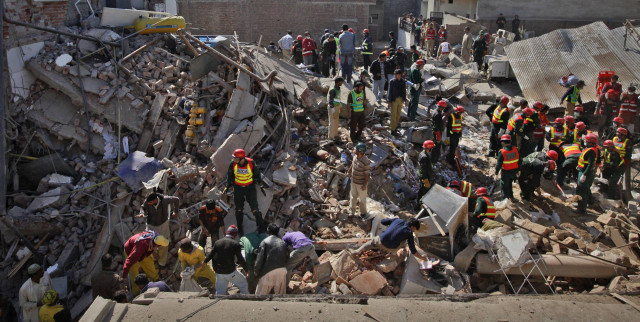Cylinder tragedy in Lahore
Despite a ban, the hazardous process of refilling cylinders continues.

The precise nature of the incident is, of course, still being examined, though investigators seem convinced a gas cylinder triggered the blast. There have been accidents of similar nature before — in Lahore and elsewhere around the country. CNG kits in vehicles have caused other accidents, again claiming a high toll on lives. It seems quite evident that there is a need for better safety standards — both in the manufacture of cylinders and their use. Despite a ban, the hazardous process of refilling cylinders continues. And, of course, safety mechanisms installed within factories are virtually unknown, with even fire extinguishers being a rarity.
With more attention to safety — and greater value for human lives — it may be possible to avert a significant number of deaths and injuries. The real question to be asked is whether authorities have the will and the commitment required to go about this, both by regulating cylinder manufacture and safety conditions within factories. And if they do not demonstrate this will, then more unfortunate deaths in the future are inevitable.
Published in The Express Tribune, February 7th, 2012.














COMMENTS
Comments are moderated and generally will be posted if they are on-topic and not abusive.
For more information, please see our Comments FAQ